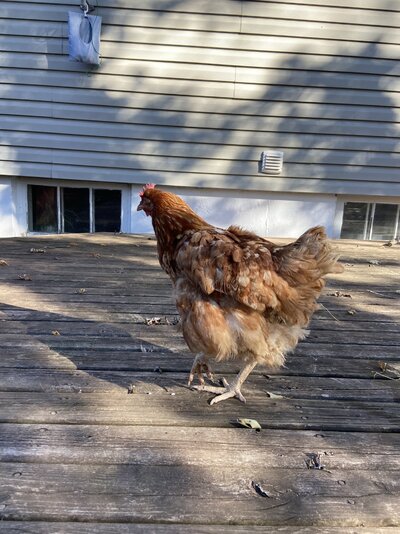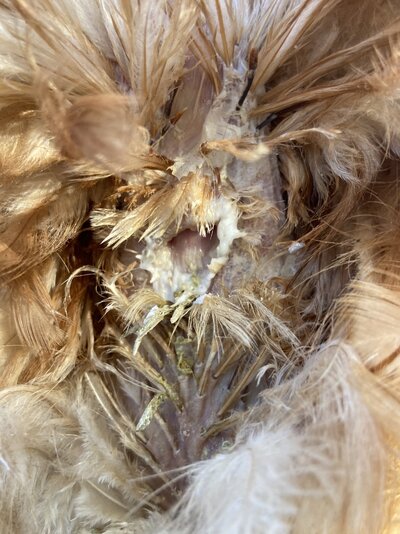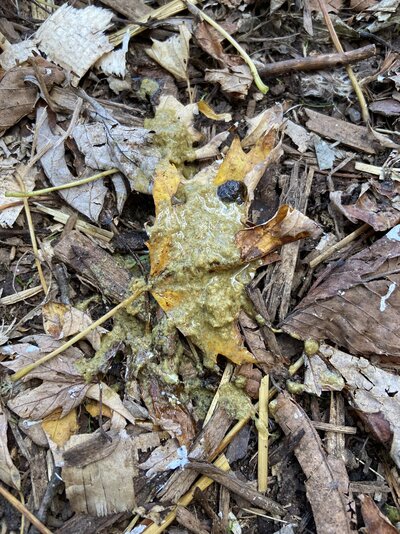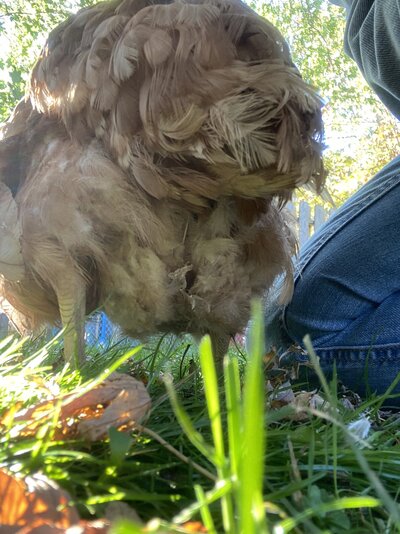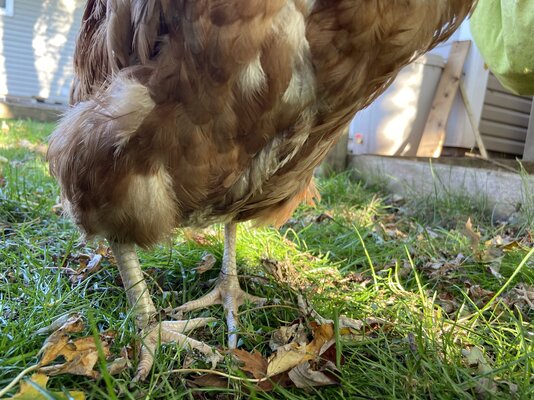schambo
Songster
Lulu is around 1.5-2 years old, and has been under the weather for about 2 weeks. I was confident that I was dealing with vent gleet, as she had a poopy, crusty butt, feather loss around her vent, and the whole area was red and irritated, but I’ve been bathing her and treating her with canesten and am not really seeing any improvement. The last few days she’s been low-energy, just kind of hanging out hunched over by herself. She seems to have trouble jumping onto the perch at night. She isn’t currently laying and hasn’t since May due to a combo of stress from a predator attack followed immediately by a long, slow molt. She also has these loose green stools I have a flock of 4, and so far no one else seems remotely affected, so I don’t think it’s diet or a contagious illness. They are on layer crumble with daily treats of BSF larvae and occasional treats of veggies, and the often roam my small suburban backyard.
Any suggestions?
Any suggestions?


